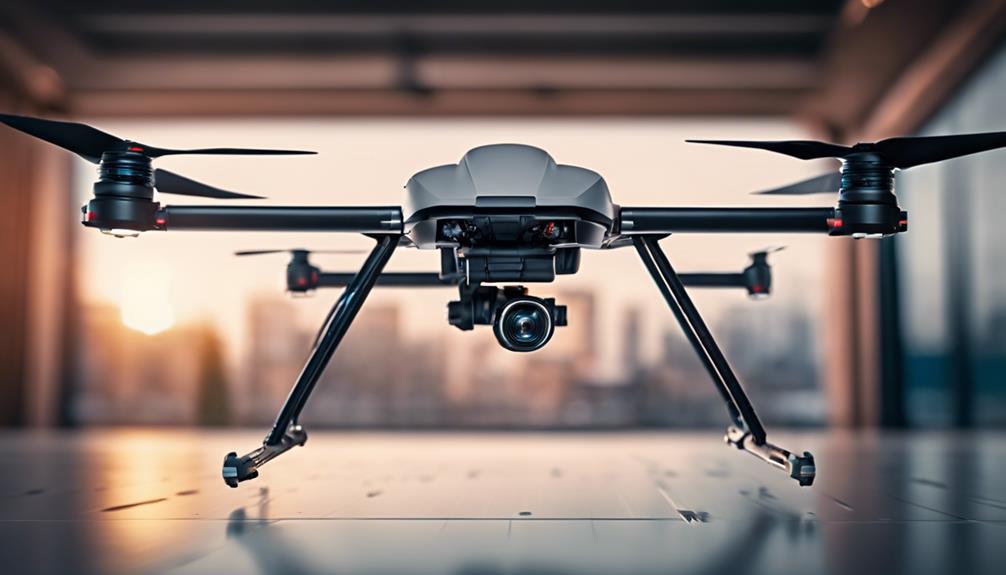Submit Your Request
Please fill out the form below.
Please fill out the form below.
Need a custom solution?

In the automotive industry, DC motors play a crucial role in powering electric vehicles, enhancing efficiency, and performance.
From powering the windows in your car to driving complex machinery in industrial settings, DC motors find applications in a wide range of industries.
But have you ever wondered how these versatile motors are utilized in robotics and automation to streamline processes and increase productivity?
Let’s explore the fascinating world of DC motors and their diverse applications across different sectors.
In the automotive industry, DC motors play a crucial role in powering various components of vehicles, such as electric windows and windshield wipers. When it comes to electric vehicles, DC motors are essential for driving the vehicle’s propulsion system. These motors help in converting electrical energy into mechanical energy, providing the necessary power to drive the wheels.
Additionally, DC motors are integral in the functioning of steering systems in vehicles. Electric power steering systems rely on DC motors to assist drivers in steering the vehicle with ease. By adjusting the amount of assistance based on the driving conditions, DC motors ensure a smooth and responsive steering experience.
Within the realm of robotics and automation, DC motors serve as vital components that drive the precise movements and functionalities of robotic systems. These motors are integral in enabling a wide range of applications, from factory automation to the development of advanced humanoid robots.
Below are some key aspects highlighting the importance of DC motors in robotics and automation:
The synergy between DC motors and cutting-edge technologies like machine learning is propelling the development of increasingly sophisticated autonomous systems in the field of robotics and automation.
What role do DC motors play in the renewable energy sector, and how do they contribute to the efficiency and functionality of sustainable energy systems?
DC motors are integral in the renewable energy sector, especially in applications such as solar power and wind turbines. In solar power systems, DC motors are used in solar tracking systems to adjust the position of solar panels, maximizing sunlight exposure for increased energy generation. Similarly, in wind turbines, DC motors are crucial components for adjusting blade angles to optimize energy production based on wind conditions.
Moreover, DC motors play a significant role in battery storage systems commonly used in renewable energy setups. These motors are utilized for charging and discharging batteries efficiently, ensuring a reliable power supply even when the primary energy sources fluctuate. Additionally, DC motors are vital in microgrids, where they help regulate power flow, stabilize voltage, and ensure smooth operation of the grid by adjusting energy distribution as needed.
DC motors play a critical role in aerospace and defense applications, providing essential propulsion and control functionalities for various aircraft and military systems. These motors are crucial components in the intricate machinery that powers the aerospace and defense sectors. When it comes to aerospace and defense applications, DC motors find extensive use in tasks such as missile guidance, surveillance, controlling flight surfaces, and managing weapon systems. The precision and reliability of DC motors make them ideal for these demanding applications where accuracy and responsiveness are paramount.
In the realm of industrial machinery and equipment, the utilization of electric motors, including DC motors, is indispensable for powering a wide array of manufacturing processes and mechanical operations. DC motors play a crucial role in powering conveyor belts, pumps, compressors, and various other equipment essential for manufacturing processes in industries such as automotive, food processing, and textile production.
These motors provide efficient power transmission, converting electrical energy into mechanical energy to drive heavy machinery and equipment used in production lines. The precise control and adjustable speed capabilities of DC motors make them ideal for applications where varying speeds are required for different manufacturing processes.
Additionally, DC motors are often used in industrial machinery to ensure consistent and reliable operation, contributing to enhanced productivity and quality control in manufacturing environments. Overall, the versatility and reliability of DC motors make them a cornerstone in the industrial machinery and equipment sector, driving efficiency and innovation in various manufacturing processes.
Advancements in DC motor technology significantly impact industries, enhancing efficiency and performance. Through improved designs and control systems, these motors optimize energy usage, increase precision, and enable automation, transforming operations across various sectors for heightened productivity.
Integrating DC motors into complex systems poses challenges despite advancements. Efficiency can be affected by compatibility issues, control intricacies, and power management. Overcoming these hurdles requires meticulous integration planning and leveraging latest technological solutions.
Yes, DC motors can excel in underwater propulsion systems for marine vessels and robotics applications due to their efficiency and controllability. Their compact size and robust construction make them ideal for these demanding environments.
In the development of autonomous vehicles and drones, DC motors play a crucial role. Their high efficiency and precise control contribute to energy-saving propulsion systems. This technology revolutionizes transportation, enhancing sustainability and performance in these innovative fields.
Industry standards and regulatory compliance significantly impact DC motor adoption across sectors. Understanding and adhering to these guidelines ensure safe and efficient operations. Compliance with standards fosters innovation and reliability, driving the integration of DC motors in diverse industries.
In conclusion, DC motors play a crucial role in various industries such as automotive, robotics, renewable energy, aerospace, and defense, as well as industrial machinery and equipment.
Their versatility, efficiency, and reliability make them a popular choice for powering a wide range of applications.
With ongoing advancements in technology, DC motors continue to drive innovation and enhance the performance of systems across different sectors, making them an indispensable component in modern industrial applications.